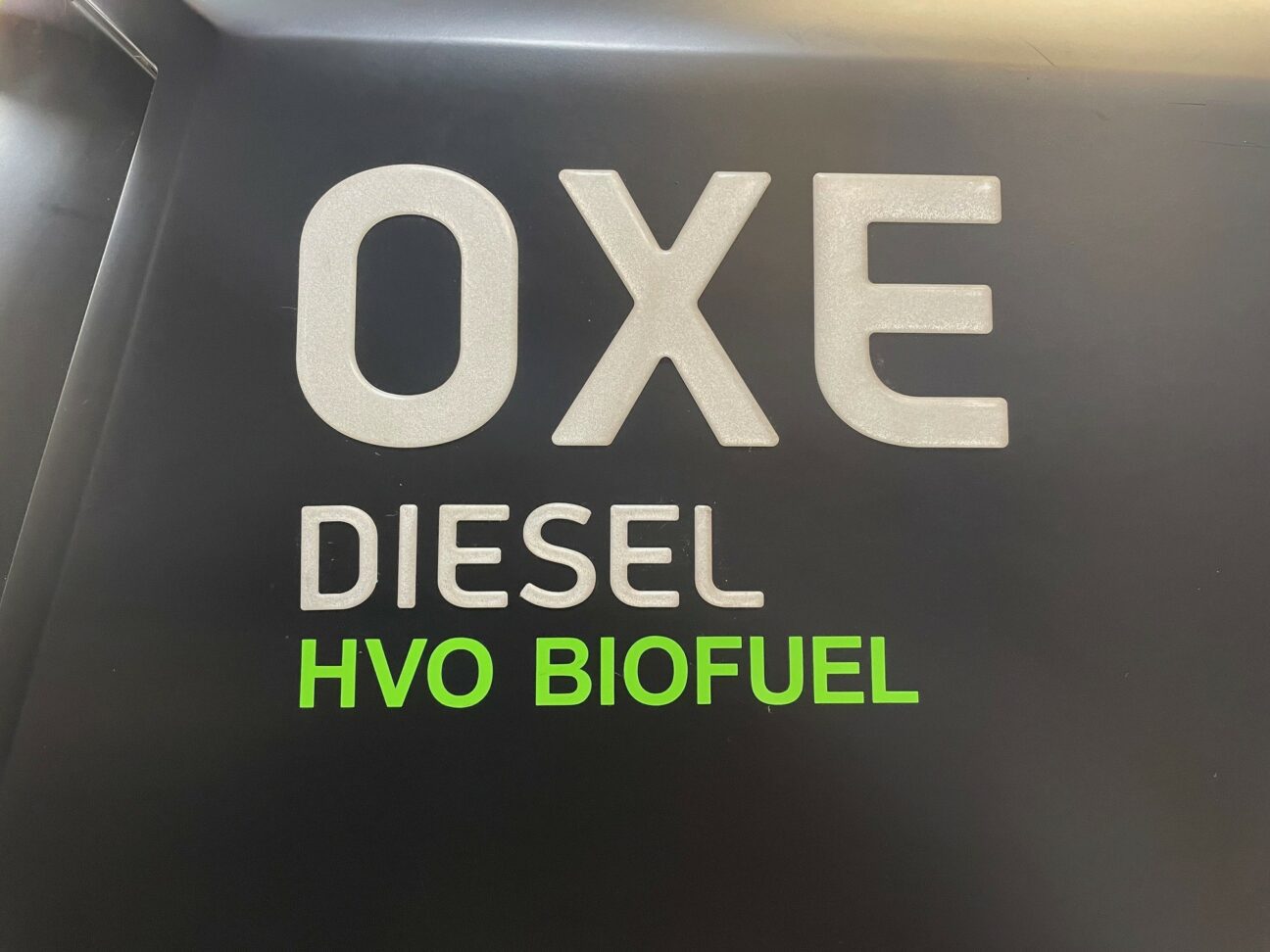
Here is some helpful information regarding Bio-fuels:
As commercial vessel operators, we all have a social responsibility to reduce our carbon emissions; the good news is that you don’t have to wait for future technologies to make your business more sustainable; reducing your vessel emissions by up to 97% is as easy as simply filling up with HVO 100 (hydro-treated vegetable oil) instead of standard diesel. It sounds straightforward and is, as the complete range of OXE Marine diesel outboards distributed by Proteum is validated to operate using HVO fuel.
Here are a few things to consider when switching to HVO 100 fossil-free fuel:
Choose a suitable biodiesel.
There are two common types of bio-diesels: FAME (fatty acid methyl ester) and HVO. For diesel-powered vessels, Proteum recommends HVO, more specifically HVO 100 – European standard EN15940 – because it has basically the same properties as standard diesel fuel (EN590), so you can use it in your vessel as you would standard diesel fuel.
HVO 100 has storage and ageing properties very similar to standard diesel fossil fuel, so you don’t need to worry about storing your HVO 100 fuel any differently than your standard diesel fuel.
All OXE diesel outboards are validated to operate with HVO 100 (EN15940) fossil-free fuel, so if you’re thinking of re-powering your current diesel engines to OXE diesel outboards, you don’t need to do anything except power up with HVO 100 and go about your usual business. No engine modifications are necessary. A few modifications to the vessel may be necessary, but no alterations should be required for your vessel fuel storage, and no change to your service intervals or requirements should be required. It’s business as usual.
What about mixing HVO with standard diesel?
HVO 100 fossil-free fuel (EN15940) has the same properties as standard diesel fuel (EN590), so you can mix the fuels in any ratio, and your OXE diesel outboard engine will continue running as usual without any difference. For example, if you have half a tank of standard diesel and find an HVO 100 pump at the marina, you can happily bunker up. Likewise, if you’re constantly fuelling with HVO 100 in your home port because it’s readily available, but you come to another port where they only have standard diesel, then no problem – fuel up with standard diesel, and your installation will continue running as usual on the mixed load.
Cost and availability.
So, if HVO 100 is an excellent choice for all the above reasons – and if it’s so easy to reduce your current CO2 emissions by 97% simply by filling up from a different pump – why isn’t everyone doing it?
The first is availability; standard diesel fuel production is very mature and widely used in every country worldwide. HVO 100 fuel is still a young product with limited demand, is more complex to produce, and isn’t readily available in all areas of the UK. This is offset by the fact that you can blend it with standard diesel. You can use HVO 100 when it’s available and switch back when it’s not – any CO2 emission reduction is a win for your company on the path to sustainability.
The second and main catch for most potential users is cost. HVO 100 fuel is currently more expensive than standard diesel, but we hope that situation will improve over time with increased use.
So, what’s the verdict on HVO 100?
If an OXE diesel outboard powers your boat, then if HVO 100 is available in your area, you can switch to HVO 100 instead of standard diesel today. You’ll achieve a significant improvement in the sustainability of your propulsion without having to invest in new equipment.
In doing so, you immediately reduce your vessel’s CO2 emissions. It’s that easy.
All you need is to find a supplier of HVO 100 in your area and be willing to pay the extra cost. This should be more viable for commercial users with regulations to adhere to and company sustainability ambitions to achieve, and the viability trend is heading in the right direction. As more people learn about the benefits, demand will continue to increase, which can help move the needle on production and availability and, ultimately, lower the cost.
Like many emerging new technologies, HVO 100 fossil-free fuel could be better, but what’s important is that the marine industry now has a growing list of choices. Choices that allow you to act immediately to cover the interim more sustainably while we wait in anticipation for the next wave of innovations, such as the OXE Marine 450Hybrid, a new generation of sustainable marine propulsion.
If you would welcome any advice on switching to HVO, then please do not hesitate to contact [email protected] or call us at 07970116473.